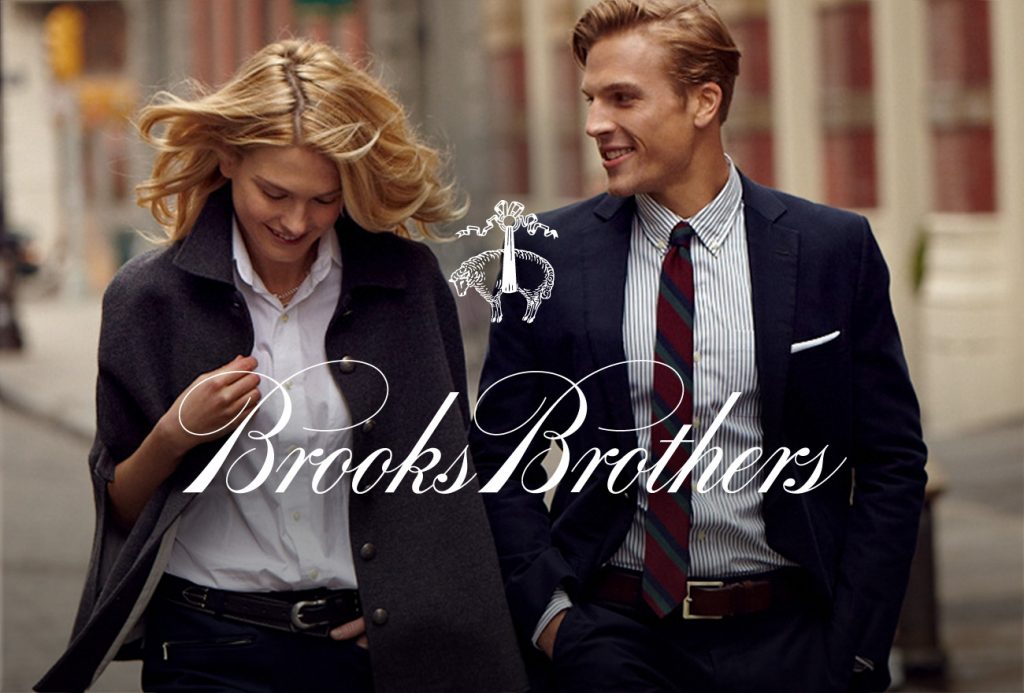The family that formerly owned Brooks Brothers is in the midst of a $100 million legal battle after allegedly failing to “fulfill their contractual and fiduciary obligations to a Brooks Brothers minority shareholder and investor. In the complaint that it they filed on Monday in a New York federal court, Castle Apparel Limited and TAL Apparel Limited (the “plaintiffs”) assert that former Brooks Brothers chairman and CEO Claudio Del Vecchio, and his son – and former Brooks Brothers board member – Matteo, among others “breached their obligations and abused their position of power at Brooks Brothers when they put their own financial interests ahead of those of the company.”
According to the newly-filed complaint, the plaintiffs argue that instead of “pursu[ing] bids for the acquisition of Brooks Brothers in 2019,” a scenarios that would have yielded “hundreds of millions of dollars for Brooks Brothers’ shareholders, including TAL,” Del Vecchios opted, instead, to “‘roll the dice’ by throwing Brooks Brothers into bankruptcy,” and selling off the company as part of the bankruptcy proceedings. “As a result of the Del Vecchios’ actions,” the plaintiffs allege that Brooks Brothers was “sold for a fraction of the price set forth in the 2019 bids, TAL’s equity position has been wiped out, and the Del Vecchios have breached their fiduciary and contractual obligations to TAL,” which made a $100 million equity investment in Brooks Brothers in 2016, when the famed American brand was wholly-owned owned by the Italian family. (Various entities controlled by the Del Vecchio family collectively owned 100 percent of Brooks Brothers from 2001 until 2016.)
To back up a bit, the plaintiffs assert in their complaint that things began to go downhill “by early 2019” when it became “clear that Brooks Brothers was not performing as the Del Vecchios had projected.” As a result of “deteriorating financing metrics,” TAL – which became a minority owner of the company following its 2016 investment – alleges that the Del Vecchios “began soliciting offers for Brooks Brothers from potential third-party buyers” without any involvement from the plaintiffs.” Despite the fact that TAL had “substantial rights and interest in such a process,” the Brooks Brothers majority owner “shielded” the bid-shopping process “from the view of Brooks Brothers’ Board of Directors and its minority shareholder, TAL.”
“Notwithstanding the secrecy,” TAL claims that it “eventually learned that the Del Vecchios had received several attractive indications of interest to purchase the company that would have allowed Brooks Brothers to avoid bankruptcy.” And yet, the Del Vecchios did not pursue any of these sale bids “for one simple reason: each of these bids reflected a lower valuation than TAL’s initial investment and would have triggered the Del Vecchios’ obligations under [a] make-whole provision and required them to dip into their own pockets to pay TAL millions of dollars at closing.”
As it turns out, as part of the Stockholders Agreement that the Del Vecchios entered into with in 2016 in exchange for its $100 million equity investment, the parties entered into a “make-whole provision that memorialized the Del Vecchios’ agreement to make TAL whole in the event that the company sold at a valuation that fell below TAL’s investment.”
With that agreement in mind, and “to avoid millions of dollars of personal liability to TAL,” the plaintiffs argue that the Del Vecchios refused to consider a sale of Brooks Brothers unless TAL agreed “to reduce or waive its make-whole right.” When TAL refused to do so, the Del Vecchios allegedly pursued the bankruptcy route, filing a Chapter 11 petition with a Delaware bankruptcy court in July 2020, and ultimately, selling “substantially all of Brooks Brothers’ assets to a third-party buyer,” a venture formed by Simon Property Group and Authentic Brands Group, for $325 million weeks later.
In the process, and by “refus[ing] to pursue value-maximizing bids in an attempt to avoid their independent financial obligations to TAL,” the Del Vecchios failed to “act in the best interests of the Company, TAL, and other stakeholders,” thereby, running afoul of their fiduciary duty to maximize the value of the company, the complaint asserts. And more than that, the plaintiffs claim that the Del Vecchios also failed “to honor their commitment to make TAL whole in the event of a sale.”
As a result, the plaintiffs have set forth an array of claims against the defendants, including breach of contract, breach of fiduciary duty, and breach of good faith and fair dealing, and two causes of action – tortious interference with contract and fraudulent inducement – against Claudio Del Vecchio, alone, in his personal capacity, arguing that its $100 million investment in Brooks Brothers is “now nearly worthless” as a result of the defendants’ foul play. TAL and co. are seeking damages to the tune of $100 million.
The case is Castle Apparel Limited, et al. v. Claudio Del Vecchio, et al., 1:21-cv-04406 (SDNY).











